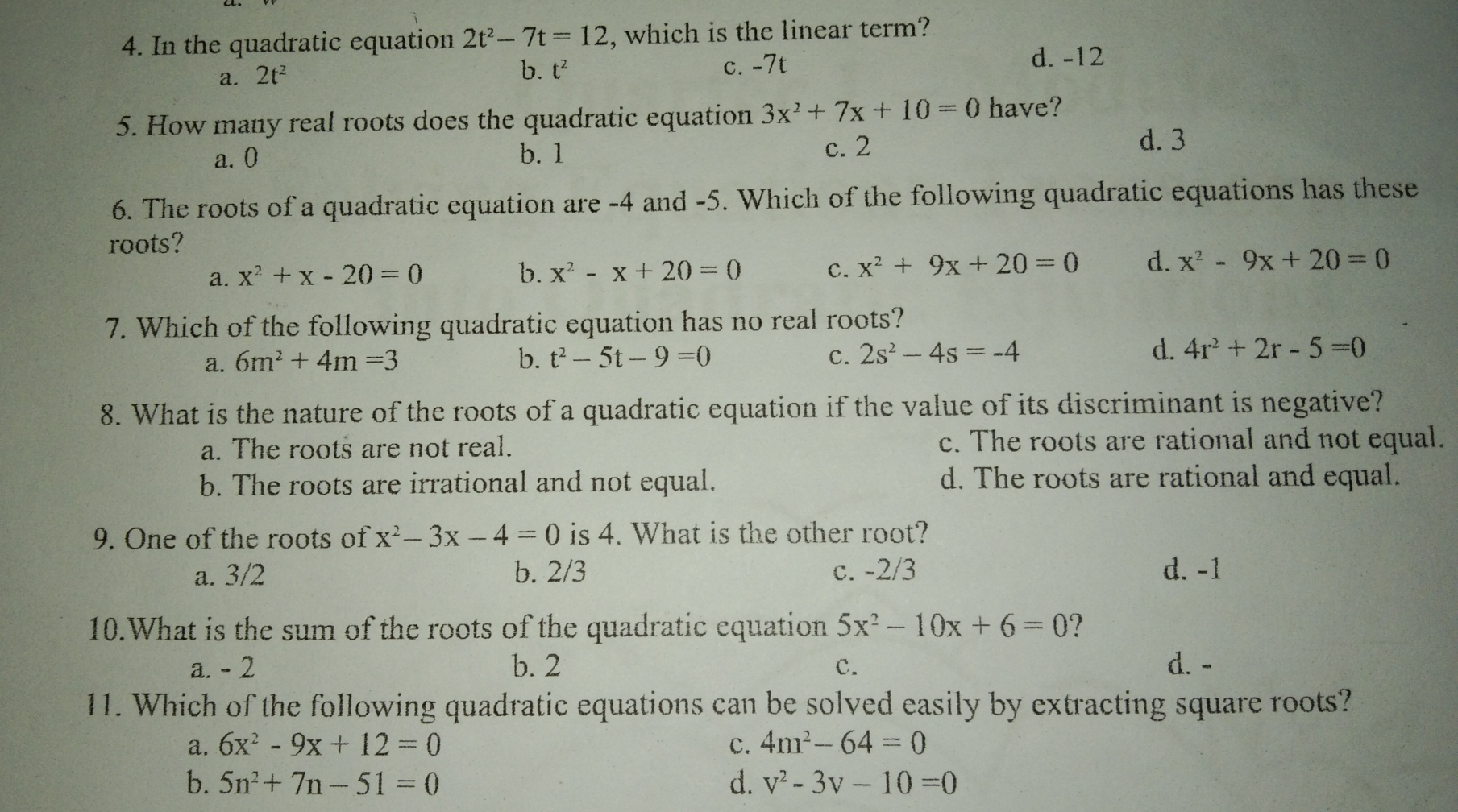4. In the quadratic equation 2t2-7t=12 , which is the linear term? a. 2t2 b. t2 c.-7t d. -12 5. How many real roots does the quadratic equation 3x2+7x+10=0 have? a.0 b. 1 c. 2 d. 3 6. The roots of a quadratic equation are -4 and -5. Which of the following quadratic equations has these roots? a. x2+x-20=0 b. x2-x+20=0 C. x2+9x+20=0 d. x2-9x+20=0 7. Which of the following quadratic equation has no real roots? a. 6m2+4m=3 b. t2-5t-9=0 C. 2s2-4s=-4 d. 4r2+2r-5=0 8. What is the nature of the roots of a quadratic equation if the value of its discriminant is negative? a. The roots are not real. c. The roots are rational and not equal. b. The roots are irrational and not equal. d. The roots are rational and equal. 9. One of the roots of x2-3x-4=0 is 4. What is the other root? a.3/2 b. 2/3 c. -2/3 d. -1 10.What is the sum of the roots of the quadratic equation 5x2-10x+6=0 ? a. - 2 b. 2 c. d. - 11. Which of the following quadratic equations can be solved easily by extracting square roots? a. 6x2-9x+12=0 c. 4m2-64=0 b. 5n2+7n-51=0 d. v2-3v-10=0
Question

Answer:
t = \dfrac{7 + \sqrt{145}}{4} or t = \dfrac{7 - \sqrt{145}}{4}
solved
algebra
10 months ago
5109